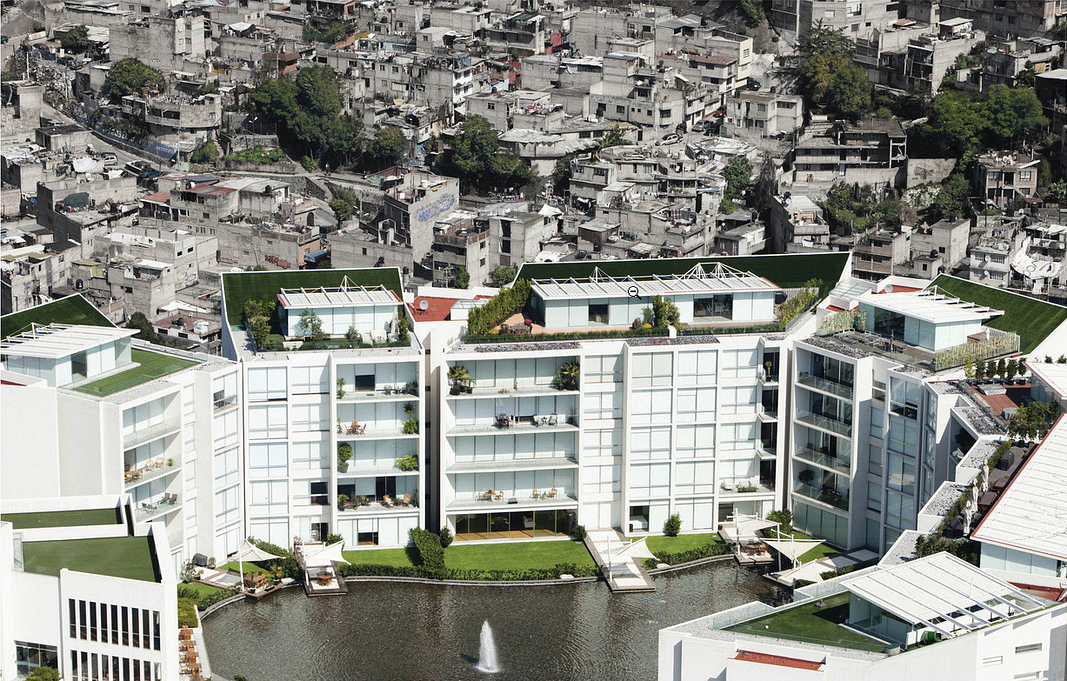 A neighborhood in Mexico City that shows a stark divide between the wealthy and powerful and those who cannot afford to live in a safe, clean place. [SOURCE: BoredomTherapy]
A neighborhood in Mexico City that shows a stark divide between the wealthy and powerful and those who cannot afford to live in a safe, clean place. [SOURCE: BoredomTherapy]There is an existing dynamic between capitalism and science which fosters a high stakes game of one-upmanship among different corporations and organizations to find the “killer app” and crush the competition. An enormous component of this dynamic is the winner-take-all mentality that is a core tenet of today’s current hyper-capitalism.
Proponents of capitalism claim that it is the market that is the catalyst for the competition that has created all of our advanced technologies and drives our future. Without capitalists being allowed to do whatever they want (ala Ayn Rand) our potential will waste away as we languish in a socialist paradise overflowing with flotillas of content people, no longer interested in competing because there’s no hunger behind that drive to innovate.
This concept causes the rise and fall of entire industries and consumes billions of dollars every single year, raising and dashing the hopes of hundreds of thousands of employees caught in this seemingly never-ending tide of feast or famine. In the meantime, the capitalists who started off as innovators have amassed vast oceans of wealth and owning, year after year, more and more of the artificially finite global cash reserve, while a growing number of people on Earth fall deeper into poverty as available money inexorably moves towards the top.
This, we are told, is what we need because, without it we would all just be filthy apes scrabbling in the dirt for food. We should thank the “job creators” for fostering an environment where the struggle for little slips of paper is real and necessary and the only thing that will drag us out of our neanderthal state and into a glorious future full of bright, shiny technology and prosperity.
On the face of it, that’s rather preposterous. Before money, people competed just fine. With money, people compete just fine. We live next to a baseball field and every Monday night anywhere from 20–40 people show up to play a night of baseball. Nobody pays them. It’s not a formalized league. There is no prize for winning. Yet, people still congregate to share in the sheer joy of competing with each other. You should hear the noise that rises from that field. Those people put their hearts and souls into those games, and for no reward greater than just having tried their best.
What do you think? Can we have functional competition while maintaining a healthy lifestyle for everyone on Earth? If humans invented money, can’t we just invent a better way and still have all the benefits a global society, rich in cultural diversity brings?